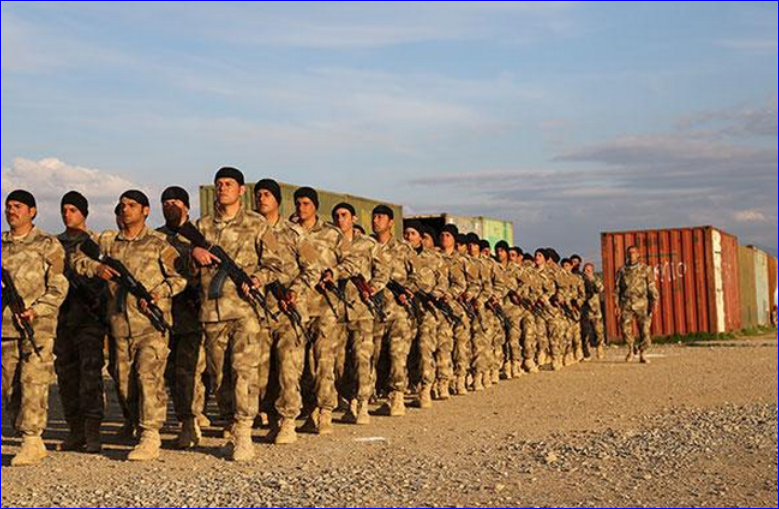


 Twitter/Matthew VanDyke)
Twitter/Matthew VanDyke)
Everyone wants to exploit Christians of Nineveh Plain for their ambitions and political interests. It is an area with different ethnic groups and religious communities, it is the dividing area between the region dominated by the Kurds and the region dominated by Sunni Arabs. I am afraid that all these talks will turn Nineveh Plain into a continuing conflict region, and in this case, no Christian will return to their homes.Delia Kashat, the Director of Government Relations for the Nineveh Council of America said:
The Patriarch has reason to worry about the future of Iraq's Christians and other minorities within their own country. Diaspora groups that are calling for the direct arming of Christian militias -- those militias that are not aligned with the effective fighting forces on the ground, namely the Kurdish Peshmerga or the Iraqi Security Forces -- are only adding fuel to the fires of sectarianism."Not only does the direct arming of rogue militia groups go against U.S. government policy but it also places targets on the backs of minority communities," argues Kashat. "Patriarch Sako very much understands the political situation on the ground and would like to see more collaboration and integration of forces to free the Da'esh controlled areas." Strong support for the Fortenberry amendments came from Toufic Baaklini, President of the umbrella nonprofit In Defense of Christians and Robert Nicholson, Executive Director of the Philos Project. "IDC believes that the restoration of indigenous religious and ethnic minority communities to their ancient homelands should be a priority for the United States and the international community," Baaklini wrote. "As ISIS is driven back in Nineveh Province, Assyrians, Chaldeans, Syriacs, Yezidis, and other groups must be restored to their historic lands on the Nineveh Plain. "While Iraq has been torn apart by sectarian violence, Assyrian, Chaldean, Syriac, Yezidi, and other communities of Nineveh have lived in peace," said Baaklini. "This is a model for pluralism in Iraq and the region," and "other distinct communities be guaranteed by regional and national governments and by the U.S. and the international community." "The Philos Project welcomes the passage of the 2016 NDAA and the empowerment of Iraq's indigenous minorities to liberate and protect their ancestral homeland," Nicholson wrote in an email. "We thank Congressman Fortenberry and all those who worked to make this a reality. It gives us hope that Assyrian Christians and other minority communities have a future in Iraq as equal partners in the defense of the country." As a matter of fact, defense group staffed by Iraqi Christian forces of all the 12 Christian denominations in Iraq will be a rallying event and can unify the fragmented Christians in a fight against a common foe. The Nineveh Plains Protection Unit, for example, based in the northern tip of the Nineveh Plain, already has 300 soldiers trained and 100 of them engaged ISIS at the Battle for Tel Asqaf on May 3. The NPU soldiers are paid by Baghdad and are sanctioned by the Iraqi Security Forces. As many as 2,000 Assyrian men are ready to join when weapons and training are available, according to Jeff Gardner, the chief operations officer of the U.S.-based nonprofit, Restore Nineveh Now Foundation. Refusing aid from the United States and Baghdad means leaving the surviving Christian flocks under the control of and at the mercy of the Kurdish Regional Government. The Iraqi Christian forces are better served by taking defense responsibilities into their own hands, and with the U.S. Congress ready to help, opportunity is knocking.

or register to post a comment.